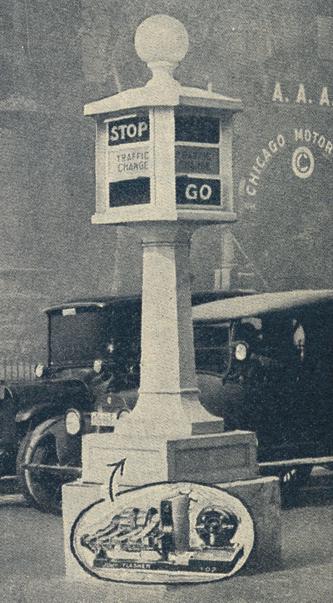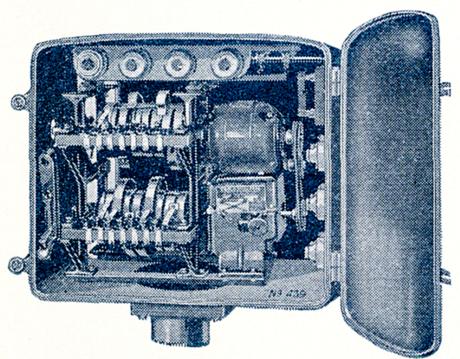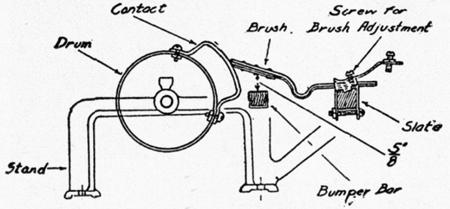Difference between revisions of "Reynolds Electric Company"
(→Summary) |
(→Summary) |
||
| Line 3: | Line 3: | ||
In 1913 while under the Reynolds Electric Flasher Manufacturing Company name they began building their own electric motors. | In 1913 while under the Reynolds Electric Flasher Manufacturing Company name they began building their own electric motors. | ||
| + | |||
| + | Company was known as Reynolds Electric Flasher Manufacturing Company from 1909-1913 at a minimum | ||
| + | |||
| + | Company was known as Reynolds Electric Company through 1938-1942. Don't know earlier/later dates. | ||
| + | |||
| + | Not believed to be related to Holabird Reynolds Electric Company or Graham-Reynolds Electric Company of Los Angeles. | ||
== Traffic Signals == | == Traffic Signals == | ||
Revision as of 16:35, 6 November 2015
Contents
Summary
Manufacturer of Essco-Style traffic signals in the early 20's. One of the pioneers. Chicago, Illinois.
In 1913 while under the Reynolds Electric Flasher Manufacturing Company name they began building their own electric motors.
Company was known as Reynolds Electric Flasher Manufacturing Company from 1909-1913 at a minimum
Company was known as Reynolds Electric Company through 1938-1942. Don't know earlier/later dates.
Not believed to be related to Holabird Reynolds Electric Company or Graham-Reynolds Electric Company of Los Angeles.
Traffic Signals
broken down into general categories [delete]
Four Ways
describe models, variations [delete]
Figure: Pedestal type signal with cutaway view showing controller mounted in base. [Image by LC]
Adjustables
describe models, variations [delete]
Pedestrian Signals
describe models, variations [delete]
Vehicle Heads (Round)
Vehicle Heads (Square Door Adapters)
Pedestrian/Sign Heads (Rectangular)
Informational Signals and Signs
describe models, variations [delete] includes "box signs," "case signs," and Ped Heads with special [non-ped] lenses.
Lenses
describe models, variations [delete]
Vehicular
Pedestrian
Worded
Symbols
Special
Controllers
Flasher Model No. 439
This was much like the modern electro-mechanical flashers. Contact brushes are installed, with the contact being fastened to the drum, all of which is rotated by the motor. A speed govenor is included to alter the timing. This is a lubrication-free model, instead the brushes are changed periodically.
Figure: Interior View of Model No. 439 Flasher Control. [Image by LC]
Figure: Contact and drum assembly sketch. [Image by LC]
Hardware
this would include any kind of mounting hardware including brackets, slipfitters, hangers, bases, etc. [delete]
Miscellaneous Images
a couple of quality pics of a restored unit [delete]
References
Chicago Engineering Works Review, When Electricity Says "Stop!" and "Go!", Vol. 6 No. 12, April 1926, Student's Department edition.


